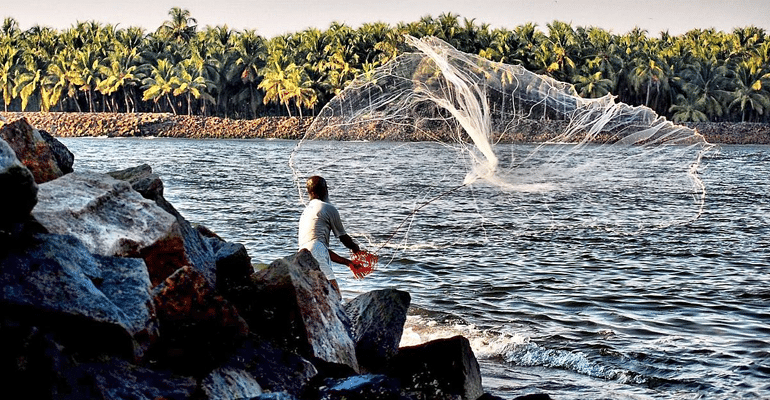Heard about National Geographic’s much talked about the campaign- Planet or Plastic? In an initiative to keep the ocean plastic-free, a fishing town in Kerala has planned to use these plastics in the construction of roads.
The community has united to fight the environmental problem. This in return has increased the employment opportunities for women in an industry that was previously male-dominated.
National Geographic spoke to a fisherman from Kollam, Xavier Peter, who says that rise in plastic pollution, has made his job a lot difficult in catching fishes and shrimps. Their patience wears thin when he and his crew members spend hours separating plastic from the nets.

“Pulling the nets out of the water is extra effort, with all this plastic tangled in them,” he said. “It’s a bit like trying to draw water from a well—your bucket is somehow being weighed back down,” he added.
A leader of a union for fishing boat owners in the region, Peter Mathias was tired of listening to complaints from fellow fisherman and planned to do something to solve this crisis. For a long time, his area didn’t have any waste management system, so the fisherman ended up throwing plastic back into the water.
Mathias told National Geographic that it is necessary to keep the oceans clean for the survival of fishermen. One should show some accountability towards it. In 2017, he asked state minister of fisheries J. Mercykutty Amma if she could find a solution to recycle the plastic. As a result, Amma informed five other government departments regarding this issue.
A recycling plant is likely to be built by the department of civil engineers and the women’s empowerment department has also found a new way to employ females to run the plant and earn money.
Since August 2017, Peter along with 5,000 fishermen have collected 65 metric tons of plastic, which used to get caught in their nets while fishing. They bring it back to the shores to be recycled, instead of throwing them back into the ocean.
Women take it from here and about 30 of them sort the plastic, shred it and send it to the road crews to strengthen their asphalt.
The positive impact is already seen in the fishing community and people from the fishing community are seeing a reduction in the number of plastics in their net. The organizers have also asked other fishing communities to join and raise funds to build a recycling plant of their own, as mentioned in the report.

